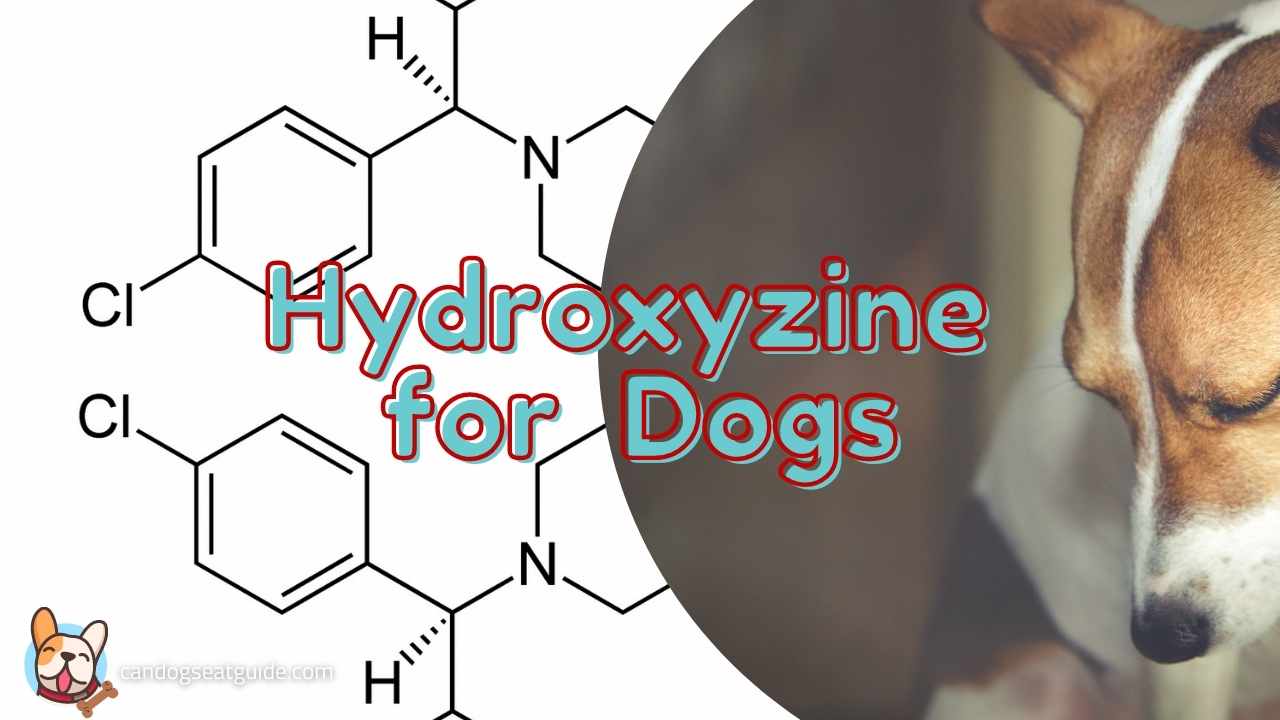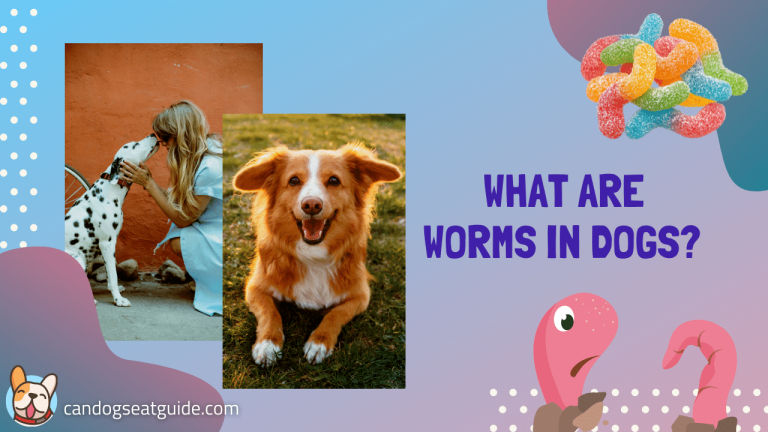Hydroxyzine for dogs is popularly known to have been used to deal with allergic reactions in dogs.
But being a pet owner with little background in sciences but a lot of love for your dog, how do you ensure this drug is safe for your canine buddy?
In this article, we’re going to help you discover how.
Hydroxyzine for dogs: What is hydroxyzine?
Let’s start with the most important question
What exactly is hydroxyzine?
Well, it is what is known as an “anti-histamine”.
Antihistamines, as the name suggests, are a class of drugs that stop the release of histamines. This, in turn, helps counter the effects of any allergic reactions.
Histamines are an interesting little thing all on their own.
Why?
Well for starters, you may be wondering, if histamines are so bad for an organism, why would the body release them in the first place?
Here’s why…
Normally, the release of histamines is an immune response. Once these are released, they help the increased inflow of white blood cells (our body’s warriors) and enable them to attack any pathogens that might have invaded the body.
But it turns out that at times, this might just be a double-edged sword.
Hydroxyzine for dogs: Unwanted Histamine Release
You see, unlike in the case of pathogen invasion inside the body, sometimes, the body reacts adversely to something which is usually harmless to others. In such a case, we say that the body has an allergy to a certain substance.
So, your dog might have had nothing but a few peanuts and because they’re allergic to peanuts, their body will start producing massive amounts of histamine.
And while histamine release is useful when it occurs because of pathogen invasion, understandably, it is quite alarming when it gets released in massive amounts as the result of a few peanuts or some other harmless, food.
Hydroxyzine for dogs: Histamine and Anaphylaxis

If you or no one you know of, has ever had any allergies then you might be wondering: what happens as the result of an allergy?
Many of us have seen the usual things in one movie or another, where the person/animal allergic to something starts going into a seizure or shock. Sometimes the mouth swells up and increased inflammation can occur in a matter of seconds.
In reality, most of these things do happen.
But what’s most troubling is that an allergic reaction can cause anaphylaxis.
This is when the airways swell leading to obstruction in the lungs and trouble breathing. Inflammations along the skin, and hypotension occurs very rapidly. If left untreated for even a few minutes, the result could be severe life-long paralysis or complete fatality.
Therefore, allergies are as bad as they are, and it is always helpful to know what your dog might be allergic to.
Hydroxyzine for dogs: Hydroxyzine Based Treatment
So, where does hydroxyzine come into all this?
Simply put, it is a treatment option for your dog that is widely utilized by many veterinarians. For full disclosure though, the FDA thus far has not verified it as being safe for use in dogs. But at the same time, it is also one of the best sources of treatment that is known so far.
This is why if you are in possession of a prescription from the vet, a nearby pharmacy will be in possession of this drug if you do need it.
Hydroxyzine for dogs: How does Hydroxyzine Work?
To begin with, it prevents the increase of histamine. And it does so by depressing certain elements of the central nervous system.
While hydroxyzine might work for peanut allergies etc. its primary usage is in dealing with allergic reactions that result from snake bites, vaccines, and insect bites.
A lot of medical practitioners tend to recommend hydroxyzine along with some other, a more powerful substance such as epinephrine when it comes to food allergies though.
This is why if you are going to give your dog hydroxyzine on our advice, it’s best that you stick to areas where it is commonly used by vets.
Also, this should go without saying but always get proper vet consultation before giving any medicine to your dog. Not doing so might seem convenient in the short term.
But believe me when I say, no matter how many articles you read, a vet’s opinion will always be a more qualified one.
And besides, every dog is different in its needs and requirements. And who else is going to be a better judge for that than the vet?
Hydroxyzine for dogs: What Should be the Dosage

1 mg per pound of body weight is the generally recommended dosage for dogs. And this dosage should be given to your fog twice or thrice a day.
While hydroxyzine may be given with or without food, it is best if you offer it with a meal.
That is especially true if your dog vomits if it’s given to them on an empty stomach.
Finally, just like you would with any other medication, please ensure that the vet- recommended dosage cycle is completed before you stop giving this medication to your pet; even if they begin to show signs of improvement and their symptoms disappear.
Hydroxyzine for dogs: Potential Side Effects
Since this drug works by depressing the central nervous system, it can have certain side effects.
A few harmless ones would be something like sedation.
So, don’t worry if your dog becomes a little bit lazy when it is administered to them. That’s perfectly normal.
A lot of sedation, however, might be a cause for a little concern.
And, if this is coupled with the loss of appetite or vomiting, please be sure to take them to the vet immediately.
Unfortunately, while hydroxyzine is a drug used for allergies, sometimes, this in itself can be the substance your dog is allergic to.
In such a case, the vet might help you out by suggesting some alternative medicine for your buddy.
To know if your dog is allergic to hydroxyzine, keep an eye out for the following symptom:
- Weakness;
- Dry mouth;
- Increased thirst or urination;
- Trouble urinating;
- Loss of appetite;
- Diarrhea;
- Seizure.
Take them to a vet as soon as any of these points surface.
Hydroxyzine for dogs: Further Information on Hydroxyzine
Hopefully, if you’ve read the entire article, you now know not only the science behind hydroxyzine but have also learned what you really came here for. That is if hydroxyzine for dogs is going to be a sensible option.
But before you leave, here are a few items or fun facts really, that we thought you might want to learn about hydroxyzine as a drug and chemical compound.
- To begin with, it has the chemical formula C21H29Cl3N2O2 , so the structure does contain a benzene ring or two but on the whole, isn’t as complicated of a structure as one might expect it to be.
- The FDA classifies it as Hydroxyzine HCl as far as non- proprietary names go.
- A lot of patents on hydroxyzine ended by the year 2016. But then later, beginning in 2020, two new patents were issued on a few other derivates of this compound. Namely, in terms of its usage as a “Synthesizer of 2-chloroethoxy ethanol”, and one other in psychiatry, where the drug has been suggested for use in treating emotional disorders in adolescents and children.
FAQs
Is hydroxyzine for dogs a safe way to deal with allergies?
Yes. Provided that it’s recommended by the vet.
Will using hydroxyzine for dogs result in any adverse health effects?
Yes. Some dogs might be allergic to the drug itself, which is why it is best to confirm with a certified vet.
Has using hydroxyzine for dogs ever resulted in fatality?
Not that we are aware of, but if a dog is allergic to something- even if it’s a medicine, it’s best to keep them away from it.
I want hydroxyzine for dogs in order to treat peanut allergies. Is that safe?
Not completely. Things like epinephrine, which is supposed to be the primary treatment for peanut allergy might interfere with hydroxyzine’s effectiveness.
Will using hydroxyzine for dogs result in any long-term side effects?
In so far as the data tells us thus far, the answer is no. Many dogs are treated using this medicine and few ever develop long-lasting problems.









